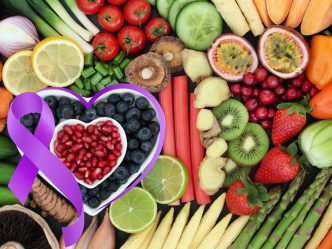If you have a food allergy, there’s really only one treatment:
Just don’t eat the food.
“But that’s not always so simple,” said Dr. Anthony Bonitatibus, an allergist/immunologist at Augusta University Health.
Food allergies affect about one out of every 25 of us, with a slightly higher prevalence in children younger than 5. The main culprits? Peanuts top the list in both adults and kids. Children also tend to be allergic to cow’s milk and eggs, and for adults, it’s seafood and other nuts. Wheat and soybeans are other potential allergens.
While kids will often outgrow certain allergies, others stay with us all our lives. And bummer: Allergies to foods that we’ve always enjoyed can suddenly show up in adulthood.
“So if you have a reaction after eating a food, even if it’s mild, stay aware and talk to your doctor about it,” said Bonitatibus.
What’s your reaction?
Reactions can be all over the board, from anaphylaxis – a severe reaction that puts your body into shock, causes your blood pressure to drop and constricts your airways, making it hard to breathe – to itchiness and hives. In between, you may also experience swelling (especially of the tongue), asthma, diarrhea or vomiting, and even upper respiratory problems like sneezing and a runny nose.
Some food allergies can even cause some very unusual symptoms. Eosinophilic esophagitis is a chronic disease that’s associated with food allergies, in which your esophagus – the tube that carries food from your mouth to your stomach – narrows, which can literally make it hard to swallow. Food-dependent, exercise-induced anaphylaxis (FDEIA) is a severe reaction that only happens if you eat a certain food – such as celery, wheat, milk, fish, shellfish or fruit – then exercise within two to four hours, but not if you just eat the food or just exercise.
Another very dramatic reaction can be caused by Food Protein-Induced Enterocolitis Syndrome, or FPIES (rhymes with “apple pies”), which affects infants and causes projectile vomiting and diarrhea. Standard allergy tests don’t show an allergy, sometimes causing it to be misdiagnosed as a stomach bug, but FPIES is usually related to cow’s milk or soy, even though any food can cause a reaction.
Forget what we said – now eat up
Most of us have seen the familiar line of skin pricks associated with diagnosing seasonal and other allergies.
For food allergies, skin testing and blood testing can provide some detail, but the gold standard? It’s called the oral challenge, where you eat the potentially allergenic food in a controlled environment under your doctor’s supervision.
“While it can seem scary to expose yourself to something that may cause a reaction, it’s the best way to judge if you are truly able to eat the food out in the real world,” Bonitatibus said.
How to avoid the “secret” ingredient
Once you have a confirmed diagnosis of a food allergy, the only way to avoid getting sick is – you guessed it – don’t eat the food.
“Have a food allergy action plan, which may include injectable epinephrine,” Bonitatibus said. “And always be aware. My rule is: If you don’t know, don’t eat.”
Most food reactions are to foods that people know they are allergic to, but that are hidden in other recipes or mistakenly used. For instance, peanut butter as a secret ingredient in chili, or grandma’s famous chocolate chip cookies, laced with finely chopped nuts. Many may not be aware that fish is what gives Worcestershire sauce its distinctive flavor or that pine nuts are in the pesto on that pasta.
Cross-reactions can also occur when you eat a food that’s similar in structure to a food you’re allergic to. For example, all tree nuts can cross-react, and peanuts can cross-react with soy or garbanzo beans. Allergic to peaches? You could also get a reaction from apples or plums. And cantaloupe allergies may mean you’re also allergic to bananas or kiwi.
“Food allergies can affect anyone, at any age,” Bonitatibus said. “They can be mild, or they can be very dangerous. The one true treatment – and I can’t say this enough – is to avoid the food and also to be both aware and prepared.”





